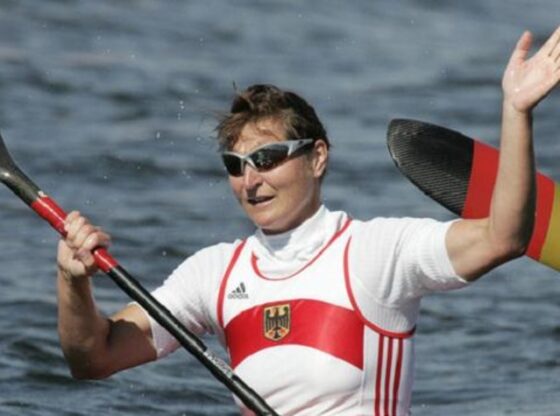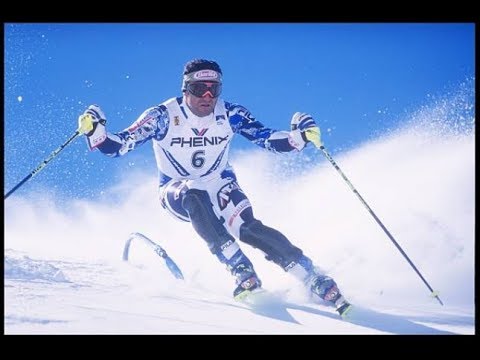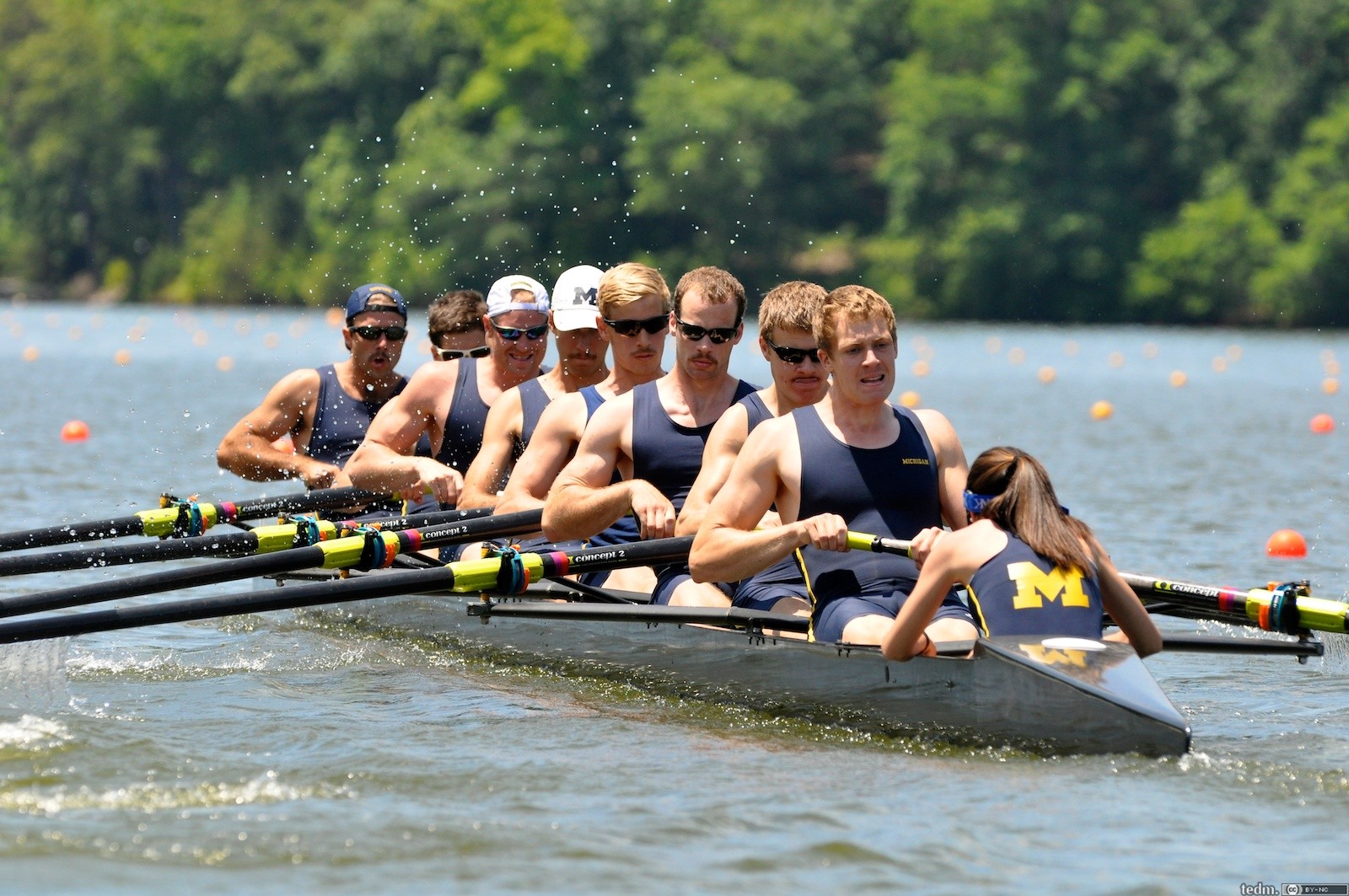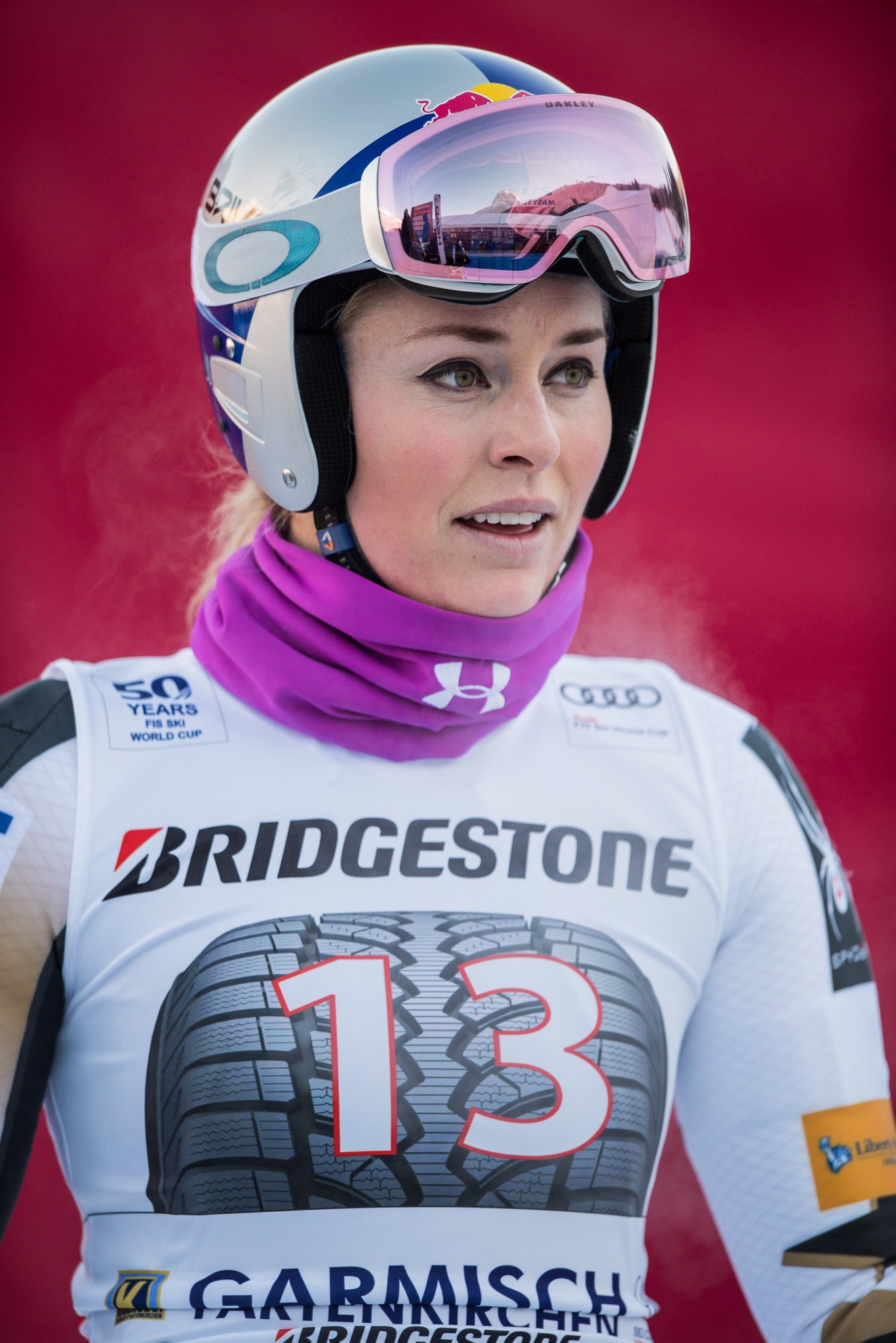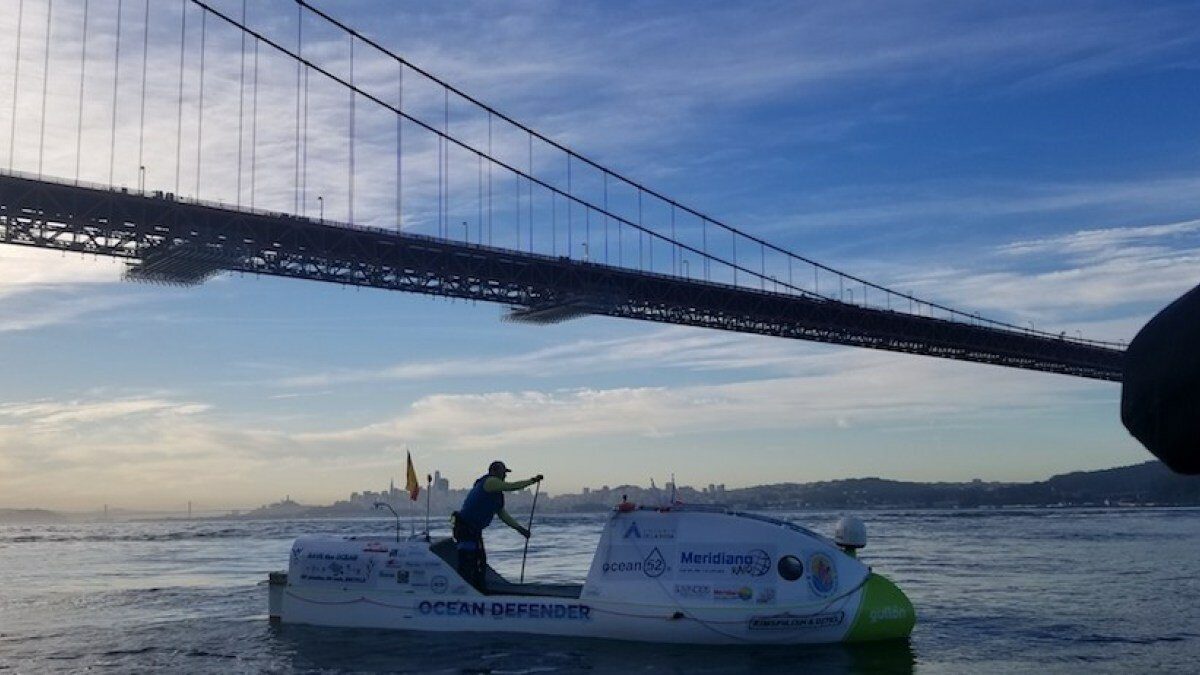Birgit Fischer is the greatest kayaker ever to paddle a boat.
First introduced as a demonstration sport at the 1924 Paris Games, Flatwater [now known as “Sprint”] Racing became an official competition sport at the 1936 Olympics in Berlin. There are two disciplines of canoeing and kayaking in Olympic competition: slalom [added to the Olympic Program in 1972] and sprint. Two styles of boats are used in this sport, both lightweight, narrow and pointed at both ends. A canoe is an open boat that is propelled with one or two competitors using single-bladed paddles while kneeling on one knee. A kayak, meaning “man-boat” in the language of native Alaskans, is a decked craft with a cockpit. Competitive kayaking events involve one, two or four athletes using double-bladed paddles from a seated position, with legs facing forward beneath the deck. The sport is governed by the International Canoe Federation [ICF], which oversees both the slalom and sprint disciplines. Sprint requires calm water, with competitors assigned to lanes and racing against each other in a straight line. Slalom is conducted on flowing water, rushing down a steep, winding course, with competitors racing individually against the clock. In the Olympics, men compete in sprint races of 200, 500 and 1,000 meters, while women—who only race kayaks—compete in 200 and 500 meter distances. Canoeing events are designated with the letter “C” and kayak races use “K”. For example, “C-1” is a canoe singles event and “K-2” is a kayak doubles event.
Born February 25, 1962, in Brandenburg—located one hour west of Berlin, along the River Havel—in what was then East Germany, Birgit Fischer was part of a canoeing family. At six, she followed her father and brothers into the sport [older brother Frank would go on to become a three-time world champion], learning to row on Lake Beetzsee. Fischer attended an army sports club in Potsdam and later worked as a sports instructor in the National People’s Army. She won her first international competition at 16, taking gold in K-4 500 m at the 1978 World Championships in Belgrade before repeating the feat the following year. At the 1980 Moscow Olympics, Fischer won the gold medal in the 500 meter singles event to become the youngest champion in Olympic kayaking. After winning world championships in three separate events in 1980, 1982, and 1983, she missed the 1984 Los Angeles Games due to the Eastern Bloc boycott. After winning two golds and a silver in the 1988 Seoul Olympics, she retired to have a child, only to return and win singles gold in Barcelona in 1992. In the Summer Games of 1996 and 2000, Fisher claimed three gold and one silver medal in K-2 and K-4 event then retired.
In autumn 2003, a television crew asked Fischer to get in an old kayak while filming a documentary. “As I sat in the kayak for the camera, it felt good,” recalled Fischer. “Suddenly, the curiosity was there again and I asked myself, ‘What can I still achieve?” The 41-year-old began training and earned a spot on her seventh Olympic team.
Hungary has won more Olympic medals [77] than any country in the history of Canoeing and Kayaking. Winners of the past three world championships in K-4 500 m, the Hungarians came into the 2004 Athens Games as the favorites. In the 2004 Olympic final, the Germans got off to a poor start and were in last place early on. At the halfway point, they had clawed their way into second, just behind Hungary. Using every ounce of her strength, determination and experience, Brigit Fischer led the Germans to victory, edging out Hungary by two-tenths of a second. After winning her eight gold medal and cementing her place in Olympic history, Fisher was voted 2004 German Sportswoman of the Year. She retired following the World Championships the following year.
Brigit Fischer is the greatest woman canoeist of all time. She is the youngest [18] and oldest [42] Olympic champion in the sport’s history and earned medals 24 years apart, the widest span between medals in women’s Olympics history. Fisher earned eight gold medals over six Olympiads, joining Hungarian fencing legend Aladar Gerevich [Daily Dose, 3/16/16] as the only two athletes to win a gold medal at six different Olympic Games. She won 12 Olympic medals, making her the second-most decorated woman in history, behind Larissa Latynina [Daily Dose, 2/24/16] who won 18. Between 1978 and 2005, Fischer won 38 ICF Canoe Sprint World Championship medals, including 28 gold. In 1984, she married Jorg Schmidt, who would go on to win a canoeing silver medal in the 1988 Seoul Games. The couple, now divorced, have two children. Frank Fisher, Birgit’s older brother and owner of nine ICF Canoe World Championship medals, married Sarina Hulsenbeck, who won a gold medal for East Germany in the 1980 Moscow Games. The couple’s daughter [Birgit’s niece] won a gold medal in the K-4 500 m event at the 2008 Beijing Games and has nine world championship medals of her own. Birgit Fischer currently lives in Brandenburg, where she owns a kayak rental shop and gives paddling lessons.
On this date in 2000, Birgit Fischer became the first woman to win a gold medal in five different Olympic Games after winning the K-4 500 m event at the Sydney International Regatta Centre. Her German team finished with a winning time of 1:34.532.

